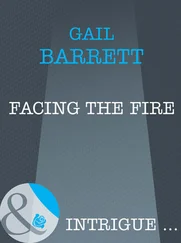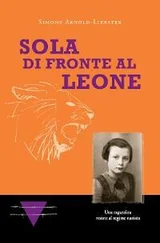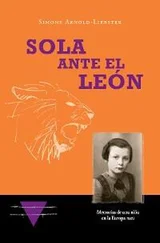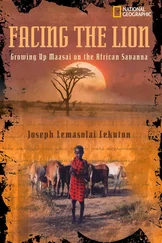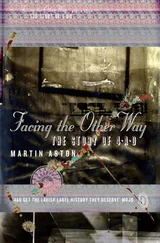I also wanted to go alone to some farms to present a booklet about Cure for all Nations. It told about the wonderful prospect that under Christ’s rule the earth will become a paradise, no more death, no more sorrow. I had a keen desire to share this peaceful Bible message with the farmers—they were all very nice to me and gladly accepted the booklets. An hour or so later, as I returned to the village, the booklets came flying out of one house. The farmer hollered, “Doomed Bibelforscher! It’s a shame, a shame to exploit children!” Couldn’t they see that I wasn’t a child? I was eight years old! All by myself I had decided to visit those people!
I gathered up my booklets, raised my head high, and walked on, slowly repeating to myself, “The slave is not greater than his master.” I felt proud as I met the group who had called on other farms.
Why did all the Catholics say that the Bible is a Protestant book, looking at it like something damned? Later that day, Dad took a history book and sat down with me, helping me to find the true answer.
“The Bible used to be in Latin. Some Catholic priests translated it against the will of the Roman priesthood, which believed in keeping it in the Latin language. The love of its contents was stronger than the ban. Look here at that image—it shows the night of Bartholomew, the day Protestants were killed by the order of a Catholic government (August 24 and 25, 1572, when French Huguenots were massacred by Roman Catholic nobles and other citizens of Paris). During the Inquisition, the church tried to do away with its opponents. They were often burned alive, like the 15 th-century Czech religious reformer John Hus and others.”
“I thought the inquisition was against the Jews.”
“It was against anyone who didn’t think according to the church teaching.”
I came to love our little Bibelforscher congregation. I had two young playmates, André Schoenaur and Edmund Schaguiné. I also gained a surrogate grandpa—Mr. Huber, a retired engineer who was a widower. He was a white-haired, well-mannered, fatherly man with a golden chain attached to a watch in his vest pocket. Marcel Graf was an office clerk at the potassium mines—tall, bald, and a real talker. The Zinglé couple often wore knickers because they were Swiss mountain climbers. Mr. Lauber, a widowed father of two small children, had lost one leg in the war. He faithfully attended all activities of the congregation, coming with his five-year-old Jeannette sitting behind him on a very old bike. There were the Dossmanns, whose son was in the Paris office of Jehovah’s Witnesses, and some others coming from outside the city.
Mum, with her missionary spirit, played a big part in the group’s activities, visiting many families, helping people like the Saler family to live a better life, getting them out of their needy situations. She believed not only in teaching but doing charitable work. Among the people she visited was Martina Ast, the lively 20-year-old maid of a Jewish family who owned the Galerie Lafayette, the main department store in Mulhouse. I loved to go visit her. She always had interesting Bible questions, but she also had nice pastries! She would even play with me sometimes.
Among our many friends, one couple was really special—the Koehls. One day when they were to be our guests, I eagerly waited for them at the window. They came in spite of the freezing weather. Adolphe, a barber, with the same name as my father, gently held his wife Maria’s elbow with one hand, and led their dog by the leash with the other. Maria’s hands were tucked in a fur muff that matched her silver fox collar. Both looked like they had just stepped out of a fashion magazine. Seated in our little salon, the two Adolphes got into a spirited conversation. Meanwhile, Mum and Maria exchanged recipes in the kitchen. After I played Maria’s favorite song, “La Paloma,” on the piano, Mum told me to serve the tea. My ears navigated between the two groups. But for some reason the left ear was “bigger” than the right. It stretched toward the two Adolphes.
“Who does he think he is—a god?” one said to the other.
“He’s just a puppet in the hands of the demons,” the other answered.
“He claims himself to be Germany’s savior— Heiland. He’s just a worm.”
“A very harmful worm, one made of rotten material.”
“He goes from victory to victory.”
“He does, but he will never prevail over Jehovah’s Witnesses.”[7] I just wondered who was this “he” that they were speaking about. In the center of the conversation was a book that our visitors had brought, Crusade Against Christianity. [8] They had it open to a drawing of some kind of camp.
“The information we learn from this book is very important. It will help us to become cautious like a serpent, and yet innocent like a dove,” both Adolphes agreed.
As the Koehls departed, they left behind the perfume of their barbershop. But they also left a big emptiness. I somehow felt that I now had another set of parents.

I returned to Bergenbach with Aunt Eugenie, who had decided not to come to our place anymore. I noticed that Grandma was treating me very differently from the way she treated Angele. She put me to work. “You are old enough to go down to the village to get our two loaves of bread.” Skipping joyfully downhill, I wondered if I had sprouted invisible wings.
Strangely, everyone in the village seemed to whisper as I went by. “Isn’t she quite little?” Quite little? My cousin—she was the one who was quite little, almost two months younger. But I had grown overnight like mushrooms do, and my Grandma recognized it. So did the cows. I had to lead them to the pasture ground, enjoying the music of their different bells. The cows could see that I wasn’t little anymore. Why couldn’t people see that I was a big girl?
But struggling back up the hill with two fresh-baked five-pound loaves, I wished I hadn’t grown so fast. I had to put my hands under the straps of my rucksack because of the burning hot loaves and the blazing sun. A few times I had to put down my load altogether. The babbling of the brook called to me, tempting me to come and cool off. But in my head I heard Mum’s warning: “When you’re sweating, never cool off your feet or you’ll get sick. Look at my arthritic feet and hands—that’s how I got them.”
Facing that steep path leading up to the farm, I could have cried. But when I heard the dogs barking, the chickens squawking, and the gurgling of the fountain, I had renewed energy. I stuck my nose in the air when I saw my little cousin, who hadn’t grown overnight as I had.
Grandma was more irritable and melancholy with each passing day. Aunt Valentine, her favorite daughter, would soon depart for Cusset, near Vichy, where Aunt Valentine’s husband had found an apartment.
Even Aunt Eugenie had no riddles, no games, no songs for us anymore. When my aunt’s employers, the Koch family, also moved to France, to the safety of the intérieur, Grandma ordered Aunt Eugenie: “You stay here! There’s nothing for you in France!”
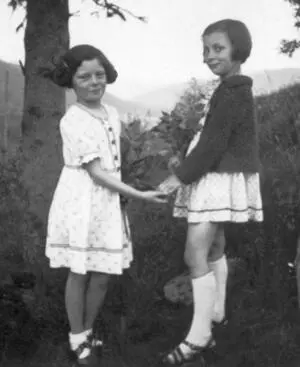 Angele and Simone, “The Oath” 1938
Angele and Simone, “The Oath” 1938
Rumors about war filled the air. Grandpa didn’t believe in war; Grandma did. Downstairs, the conversation among the four women flared up again.
“Angele, don’t worry. My father can stop a war. He says that to stop it, just take away men’s uniforms and let them go around in their underwear.” We both were sure that remedy would work!
Читать дальше


 Angele and Simone, “The Oath” 1938
Angele and Simone, “The Oath” 1938


